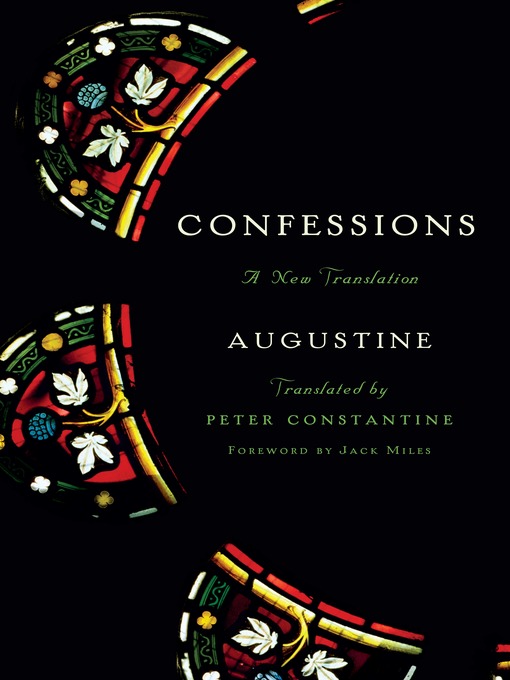
Confessions
A New Translation
کتاب های مرتبط
- اطلاعات
- نقد و بررسی
- دیدگاه کاربران
نقد و بررسی

Starred review from April 10, 2017
Written in Latin during the late fourth century C.E., this memoir from the North African saint—one of the earliest examples of autobiographical narrative—receives a wholly new translation by poet, essayist, and translator Ruden (Other Places). Approaching her subject with deep religious and historical knowledge, she chooses to translate Augustine as a performative, engaging storyteller rather than a systematic theologian. Beginning with his babyhood and struggles with early schooling, Augustine traces his own intellectual and religious development through adolescence into middle adulthood. Born to a family of both Christian and pagan faith, Augustine migrated to Italy as a young adult to pursue a career in rhetoric. Before committing himself to a life of celibate religiosity, Augustine spent roughly a decade in a long-term relationship with a woman, and the two had a son. Augustine also explored and ultimately rejected Manichaeism. He would become, during and after his life, a pivotal figure in the history of Christianity. While acknowledging that earlier translations may have been “learned and serviceable,” Ruden argues that much is lost when Augustine’s linguistic playfulness is downplayed. An extensive introduction delves into the translator’s decisions, particularly those that depart most sharply from those of her predecessors. The resulting work is delightfully readable while still densely theological. In this lively translation filled with vivid, personal prose, Ruden introduces readers to a saint whom many will realize they only thought they knew.

November 13, 2017
Translator Constantine (The Essential Writings of Rousseau) delivers a lyrical translation of what he calls “the world’s first autobiography,” transporting Augustine’s striking thoughts into streamlined modern prose. With personable candor, Augustine describes his lifelong battle against sexual temptation, remembering his youthful prayer: “Grant me chastity and continence, only not yet.” While the narrative voice feels contemporary, the content may jolt readers into recognizing that this work originates in a very different time. For example, extolling the virtues of his revered mother, Monica, whom he credits with his conversion, Augustine admires her skill in calming her violent, unfaithful husband, and her practice of scolding her friends for the “shameful marks of beatings on their faces,” which she suggests they deserve for forgetting they are slaves. Emphasizing the necessity of relying fully on God instead of self when faced with temptation, Augustine recounts how a virtuous friend, who avoided gladiator fights because of their cruelty, nevertheless succumbs to the spectacle’s seductive brutality when dragged by friends to the arena: “He drank in its savagery... intoxicated with blood-drenched delight.” Augustine’s direct appeals and poetic descriptions (“I was late in loving You, O Beauty so ancient and so new”) convey the passionate intimacy of his relationship with God. Constantine’s evocative rendering of this classic text will make it likely to appeal to a new generation of readers.

November 15, 2017
Constantine is well-known as a translator of books from such figures as Niccolo Machiavelli, Isaac Babel, and Anton Chekhov. Now he has completed a translation of Augustine's seminal work, which is also likely to be well received. When comparing this translation with other ones, readers will notice the attention given to such elements as vocabulary, grammar, syntax, clarity, and accuracy. In doing so, one finds that Constantine is particularly effective in expressing Augustine's simple and eloquent writing style, without losing his underlying complexity of phrases and thought. The opening sentence of Book 4 indicates this: "During that time of nine years, from when I was nineteen to twenty-eight, in the grip of many passions, I misled and was misled, I deceived and was deceived." Constantine is also effective in providing clarity to Augustine's theological ideas and reflections. While translations from scholars Henry Chadwyck and Maria Boulding are also of high quality, this version is unique and provides a significant contribution. VERDICT A new translation that will be of interest to theologians, scholars in classical literature, and admirers of Augustine.--John Jaeger, Johnson Univ.
Copyright 2017 Library Journal, LLC Used with permission.

























دیدگاه کاربران